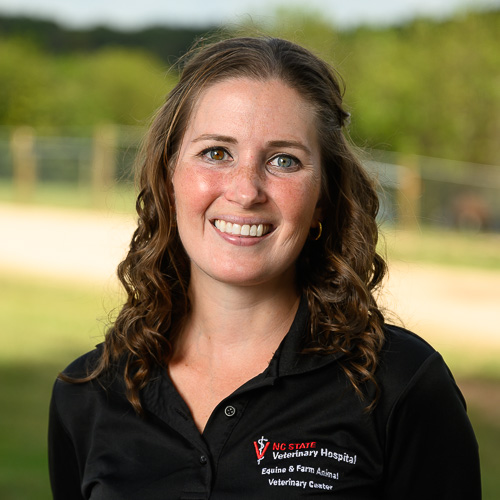Mixed Animal
Species Priority Area
Overview
The mixed-animal species priority concentrates on preparing veterinary students who aim to provide medical care and treatment to a variety of animal species, including both companion animals (such as dogs, cats and birds) and farm animals (such as cows, goats, horses, sheep and pigs). Unlike veterinarians who specialize exclusively in either small or large animals, mixed-animal veterinarians have expertise in treating a wide range of species. Career opportunities are wide ranging including private clinics, mobile practices, government agencies, military, academia, research and more.
Year 1-3 Requirements
Required Courses
Students are required to choose 2 electives from the list below. Chosen electives must focus on 2 different species groups. Species groups defined as Small Animal (dog/cat/exotics), Equine, and Ruminants (small ruminant/bovine).
Electives
- VMC 906: Equine Field Skills Elective
- VMP 998: Farm Management
- VMC 919: Clinical Behavior and Welfare for Dogs and Cats
Third Year Core Electives
- VMP 901: Small Ruminant Medicine
- VMP 906: Bovine Reproduction
- VMB 909: Case Based Radiographic Interpretation (counts as small animal)
- VMP 908: Advanced Ruminant Medicine and Surgery
- VMC 905: Advanced Topics in Small Animal Dermatology
- VMC 901: Advanced Small Animal Medicine
Recommended Courses
Students are required to take two elective courses listed above, but are highly encouraged to take more. We also recommend the following selective courses and encourage students to select courses for a variety of species.
Selectives
- VMB 992: Equine Anesthesia
- VMC 991: Equine Colic
- VMC 991: Small Animal Geriatric Medicine
- VMC 992: Large Animal Practice Experience
- VMC 992: Small Animal Practice Experience
- VMC 992: Active Learning in the VH – Dermatology
- VMP 992: Food Animal Residue Avoidance
- VMP 991: Swine Health Management
- VMB 991: Companion Animal Euthanasia
- VMC 991: Trap, Neuter, Vaccinate, Return
- VMC 991: Equine Preventive, Primary & Emergency Care
Year 4 Requirements
- Core Rotations
- Six four-week core rotations
- Diagnostic Concentration
- Anesthesia
- Internal Medicine
- Primary Care
- Surgery
- Urgent/Emergency Care
- Two two-week core rotations:
- Population Medicine/Shelter Medicine/Epidemiology
- Non species priority medicine/primary care/surgery
- Six four-week core rotations
- Elective Rotations
- Nine two-week elective rotations determined by species priority leaders











